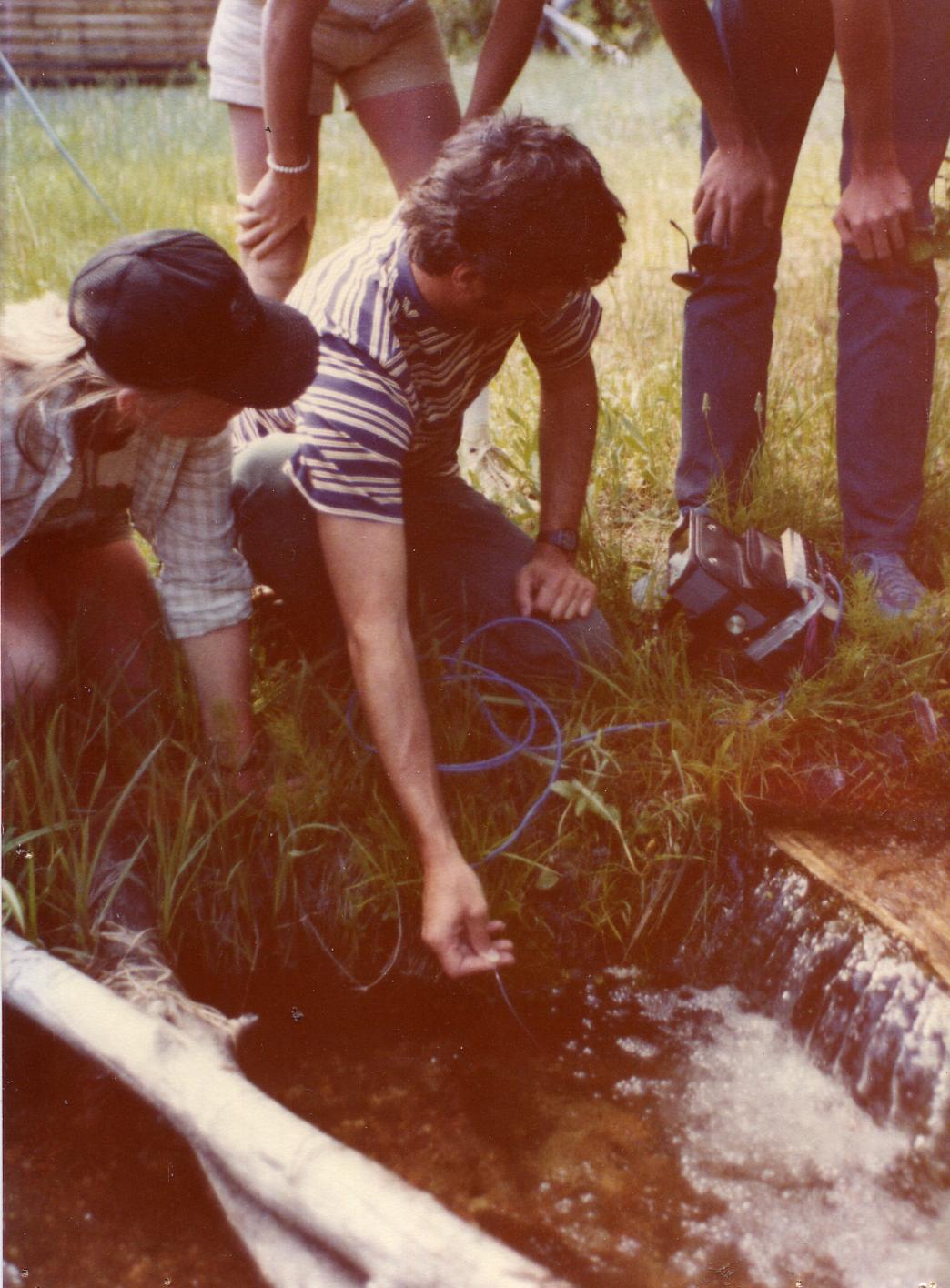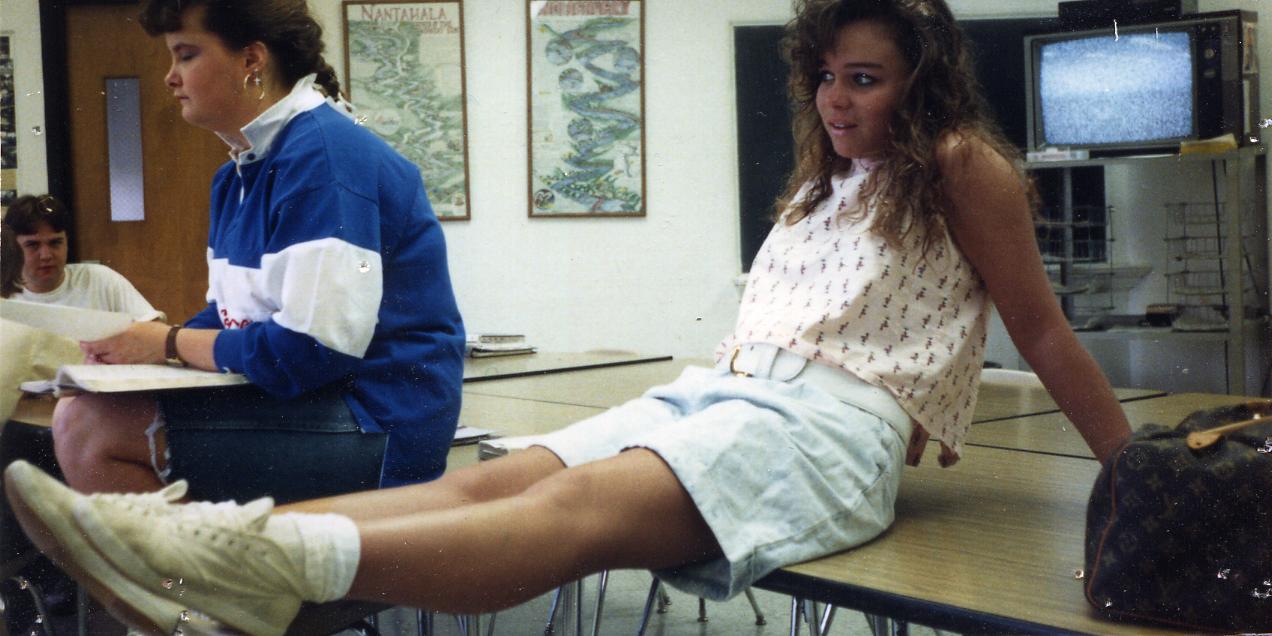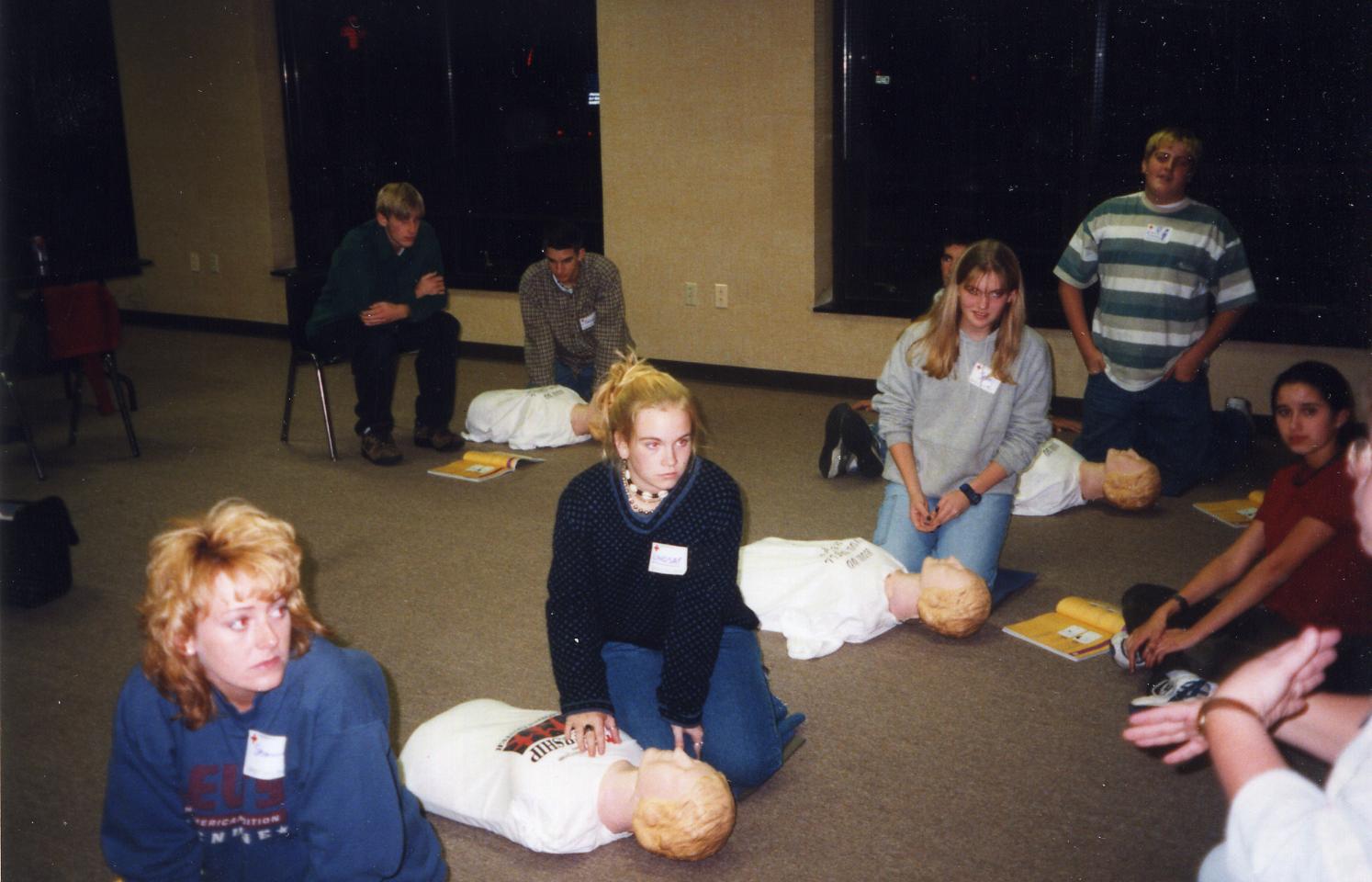
Our Program
Your Outdoor Adventure Planning Website
| Canoeing | Skiing | Bicycling | Forum |
 |
Our Program Your Outdoor Adventure Planning Website |
Clothing |
Equipment |
Vehicles |
Readings |
| We are a Venture unit. Venture today is the coed version of what used to be the Explorers for Boy Scouts and Campfire Girls for Girl Scouts. Our regional and national administration is through the B.S.A. Our age limit extends through 19, so we have members from middle school through college sophomores. Venturing allows kids to evolve their own organizational structure. Most Venturing units are Crews, but as our domain name suggests, we call ourselves an Outpost, because we are a collection of crews. We have one for hiking and backpacking, canoeing and rafting, skiing and snowboarding, roller coasters and amusement parks, and history. A new member joins one of the crews but has the right to participate in any activity set up by any other crew. |
Weather forces us into seasons. Rivers run best April-June, so we canoe and raft then. During our August - October drought we do our hiking and backpacking. Winter is for skiing. We space our amusement park and historical site trips from Easter to Thanksgiving. June and July we take our major two week expeditions. We need to be in pretty good shape, so we use treadmills, stair climbers, bikes, nautilus machines and Total Gyms. The fact that we keep active year round and move from sport to sport keeps us in good cardiovascular shape but avoids over use of any particular muscle. We've never had an accident, but if we ever do, we need to be ready. So we redo Red Cross courses in First Aid, CPR and Wilder- ness Medicine every year. |
|
We produce this site on Dreamweaver on Macintosh computers with Olympus 35mm and Nikkon digital cameras. We have had to struggle up a steep learning curve and consult half a dozen professionals but we've finally learned how to do this, and some of us have gone off to college in pursuit of Webmaster licenses. We've found out that an outdoor program is more than going for a walk in the woods. We maintain one trail year round for our required public service project, and volunteer at other national parks across the country on our two week Summer expeditions. We've received instruction on constructing trails, bridges, stairways, signs, drainages and campsites, then gone out there in hot, humid Summers and built or rebuilt key routes. We also have helped clear downfalls after wind storms, tornadoes or forest fires. This hands on labor has given us a great appreciation for the WPA workers who built many of our trail systems. |
 |
 |
We've been named Kentucky's outstanding outdoor adventure program. We have former members who have gone on to become forest rangers, wildlife biologists, rafting guides, ski instructors, nature photographers and special forces soldiers in Afghanistan and Iraq. We love it that many of these graduates return each year to take one trip with us. We've been able to sit around the campfire in the woods or around the dinner table at the ski lodge and hear stories about members who have made these trips before us and then gone out into the world and used what they learned. |
We've also learned about the science behind the national parks, wilderness areas and even historical sites. We've become involved with bird counts, stream samplings, pH tests, wolf tracking, air quality monitoring and geothermal bacteria collecting. We've seen the peregrine falcon nests in the Chisos Mountains of Big Bend National Park and the comeback of new forests after the Yellowstone Fires, the excavation of the original Jamestown Colony and reconstruction of the 1600 ship Elizabeth. Currently, we're involved in a nationwide sampling of protozoa. Everywhere we go, we obtain samples of the local water and bring it back to be checked for Paramecia, Amoeba, Euglena or other microorganisms. This data is being used to help monitor the effects of climate change on the food chain. And we end up in the lab frequently. Some of the tests we run are specific to outdoors people : which water purifier does best, which stoves heat faster, which sleeping bags hold in warmth. Some apply to amusement parks : how maglev technology can be used for the roller coasters of the future. |
These photos show us at Carnegie Mellon, the University of Pittsburgh, Cornell University, and the University of Wyoming. En route to and from wilderness areas we've visited some great university research facilities. Back home, we're very blessed with the University of Kentucky. We can visit the state of the art labs at the Biology, Chemistry, Physics or Engineering complexes, receive mentoring from the professors and graduate students, and work on projects through various Young Researchers programs. We also use the University's fabulous W. T. Young Library. This is the 13th largest library in the world and one of the top 10 most technologically advanced. It's a Library of Deposit, meaning it has all government documents. We can research anything there. And, thanks to the Geology and Environmental Sciences programs, we have a complete array of topo maps for sale. So no matter how distant our trip, we can obtain detailed maps of the area right here. |
As schools cut back on field trips and anything which does not directly concern their test scores, we wonder whether Scout units nationwide may not need to provide more and more of those educational activities the schools used to. We've sponsored winning entries in local science fairs, soap box derbies, robotics contests, engineering competitions, and debate tournaments. Somebody has to take kids to Washington, Boston, The Alamo, Fort Ticonderoga, and Williamsburg. If schools are no longer willing to do it, somebody else has to, and we've been doing it all along. We also seem to be replacing big time sports programs for lots of kids. In our part of the country, and we think most places, all the small schools have been consolidated into big two thousand student megaplexes. But there are still just 12 spots on a basketball roster, 66 in football, and 30 in baseball. Obviously, a lot of kids who used to be able to play are now not able to make the team. But kids want to be involved with something physical, exciting, part of a team. We're still offering that. Lately, we've noticed that many of our members are kids who once would have been involved in sports and either not involved at all with Scouts, or involved only during the off season. Suddenly, we're their primary activity. Back in the days when the local Scout unit went on a few trips a year, and those were to 100 acres of woods on the back end of a local farm, Scouting did not have a lot of status. But now that we're out almost every weekend skiing in Colorado, white water rafting down the Colorado, surfing on Hatteras Island and backpacking Wyoming's Wind River Wilderness, our status seems much higher. The fact that we're coed probably helps, too. Our web site is a sprawling creature. No one works on more than a part. If various stories seem to be written with a different style, or even contradict, it's because different people have written them. The web log journalistic format forces a certain similiarity, but individualistic expression still sneaks through. |
Comment or
Question ?? Join us at The
Forum. |
Read our day to day adventures at the Blog |
Or contact us at trekkerforrest@aol.com |